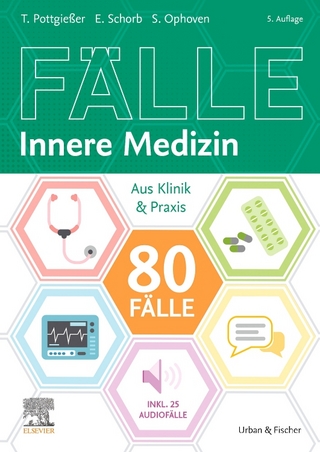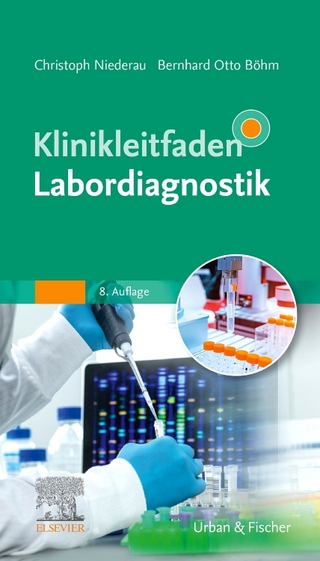
Protein Biomarkers: Discovery and Applications in Clinical Diagnostics
Springer Nature Singapore (Verlag)
978-981-97-5044-3 (ISBN)
- Titel nicht im Sortiment
- Artikel merken
This book comprehensively reviews the fundamentals of biomarker discovery using mass-spectrometry-based proteomic and glycoproteomic methods. It also provides case studies of proteomic and glycoproteomic molecular signatures to illustrate the design and use of various mass spectrometry modes such as selected reaction monitoring (SRM), parallel reaction monitoring (PRM), and sequential window acquisition of all theoretical fragment ion spectra mass spectrometry (SWATH-MS). In turn, the book presents the challenges of the proteomic methods in biomarker discovery and approaches for overcoming these challenges by extending the performance by improving the sensitivity, throughput, and selectivity of the method. It also addresses the bottleneck of deriving useful biological interpretations from large multi-dimensional datasets emanating from these experiments by discussing data analysis pipelines and appropriate statistical analysis. Finally, a detailed discussion on the design, characterization, and application of protein/glycoprotein-based biosensors for clinical diagnostics is discussed. The book is intended to serve as a reliable resource for the students and researchers working in the area of biomarker discovery and validation using mass spectrometry-based methods and their subsequent applications for biosensor design.
Dr. Sumit Kumar Singh is an Assistant Professor in the School of Biochemical Engineering at the Indian Institute of Technology (Banaras Hindu University) Varanasi. Before joining IIT BHU, he worked as a postdoctoral researcher at the University of Delaware and obtained his PhD in Chemical Engineering from Indian Institute of Technology (IIT) Delhi. His areas of interest principally encompass broad domain of therapeutic protein characterization. The current research endeavors of his group are focused on developing platform approaches by proteomic and glycomic profiling methods to understand pathobiology of viruses, development of a Universal Flu Vaccine, and developing approaches for generating pre-defined glycans in monoclonal antibodies for therapeutic applications. The research embodies a two-fold approach: (a) Identification of biomarkers that are specific to a particular disease state; (b) utilization of the chosen biomarkers to develop therapeutics using data-driven protein engineering approaches. He has authored more than 30 publications and several presentations in the area of analytical characterization and development of safe and efficacious protein-based therapeutics. He has also been a recipient of several awards at various conferences, including the Young Scientist in Bioprocessing Award (Bioprocessing India Society) and a Research Excellence Award by IIT Delhi. He is also a member of several scientific societies including American Chemical Society (BIOT Division), American Society for Mass Spectrometry, and Bioprocessing Society of India.
Dr. Pranjal Chandra is an Assistant Professor in the School of Biochemical Engineering, Indian Institute of Technology (BHU), Varanasi, India. He earned his Ph.D. from Pusan National University, South Korea, and did postdoctoral training at Technion-Israel Institute of Technology, Israel. His research focus is highly interdisciplinary, spanning a wide range in biotechnology, nanobiosensors, material engineering, and nanomedicine. He has designed several commercially viable biosensing prototypes that can be operated for onsite analysis for biomedical diagnostics. He is a guest editor and an editorial board member of various international journals. He is author of over 110 high-impact publications including research/reviews papers and invited book chapters. He has published 16 books on various aspects of biosensors/medical diagnostics. Dr. Chandra is the recipient of many prestigious awards, coveted honours, and fellowships such as: Shakuntala Amir Chand Prize 2020 by Indian Council of Medical Research (ICMR, Government of India), DST Ramanujan fellowship (Government of India); Early Career Research Award (ECRA) (DST, Government of India); BK -21 and NRF fellowship, South Korea; Technion Post-Doctoral Fellowship, Israel; Nano Molecular Society India Young Scientist Award; Biotech Research Society India (BRSI) Young Scientist Award; Young Engineers Award 2018;Highly Cited Corresponding authors in The Royal Society of Chemistry (RSC), Cambridge, London; Top 10% cited article in the General Chemistry Section RSC Journal, Cambridge, London; and Gandhian Young Technology Innovation Award (GYTI) 2020. Dr. Chandra is also listed among the world's top 2% scientist in a report by Stanford University, USA for the year 2019 and 2020.
.- Chapter 1_Experimental Design in Proteomic Mass Spectrometry Studies for Biomarker Discovery.
.- Chapter 2_Clinical Sample Considerations in Proteomics-Based Biomarker Studies: Advancing Precision Medicine.
.- Chapter 3_Analytical considerations: discovery or validation of biomarkers.
.- Chapter 4_Comparative Analysis of Shotgun and Targeted Proteomics: Insights for Biomarker Research.
.- Chapter 5_Considerations for characterizing protein expression changes with SWATH®-MS .
.- Chapter 6_ Biomarker Studies of Glycoproteins and Mass Spectrometry.
.- Chapter 7_Data analysis pipelines, potential pitfalls, and troubleshooting for MS-based biomarker discovery and validation.
.- Chapter 8_Proteins biomarkers for diagnosing gastric cancers: perspectives through mass spectrometry-based discoveries.
.- Chapter 9_ Prospects for the discovery of actionable molecular targets for Triple Negative Breast Cancer.
.- Chapter 10_Ex vivo drug assay as a potential hospital-based testing platform for clinical research and personalized treatment for solid tumors.
.- Chapter 11_Heat shock proteins as biosensor instruments for cancer detection.
.- Chapter 12_Current developments in optical and electrochemical biosensors for the identification of key inflammatory biomarkers.
.- Chapter 13_ DEVELOPMENT OF LIGAND ASSAY SYSTEMS USING SEMISYNTHETIC BIOSENSORS BASED ON PROTEIN.
.- Chapter 14_TECHNOLOGICAL ADVANCES IN BIOSENSORS FOR THE DETECTION OF HEALTH BIOMARKERS.
.- Chapter 15_ Identification of tear-based protein biomarkers: Its application.
.- Chapter 16_ Engineering a signal transduction mechanism for protein-based biosensors.
.- Chapter 17_ Protein Biomarkers Its Applications in Oral Health.
| Erscheint lt. Verlag | 18.11.2024 |
|---|---|
| Verlagsort | Singapore |
| Sprache | englisch |
| Themenwelt | Medizin / Pharmazie ► Medizinische Fachgebiete |
| Studium ► 2. Studienabschnitt (Klinik) ► Anamnese / Körperliche Untersuchung | |
| Naturwissenschaften ► Biologie ► Biochemie | |
| Schlagworte | Biomarker discovery • biosensors • Clinical analysis • mass-spectrometry • Proteomics • Validation |
| ISBN-10 | 981-97-5044-X / 981975044X |
| ISBN-13 | 978-981-97-5044-3 / 9789819750443 |
| Zustand | Neuware |
| Haben Sie eine Frage zum Produkt? |
aus dem Bereich


